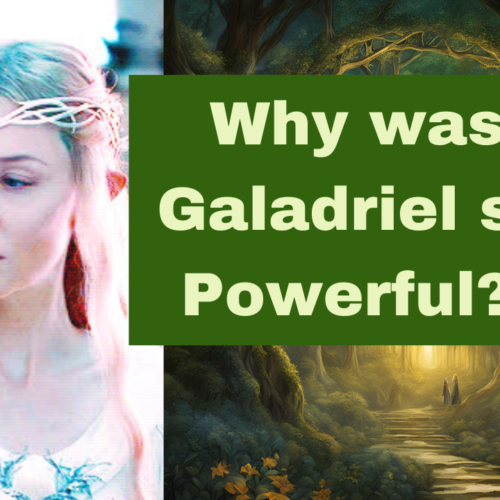Tolkien is commonly known to have a negative view on technology, claiming that “labor-saving machinery only creates endless and worse labour.” (L # 88)
While the actual extent to this view may be oftentimes exaggerated – this is also to be expected since he fought in the First World War, had two sons fighting in the second, experienced air pollution in Leeds, and lived in Oxford during the destructive imposition of the ring-road.
This view is evident in LOTR, and also in his reasoning for not flying the Eagles to Mordor, Saruman’s Isengard and Sauron’s Mordor. The Ring was the ultimate machine of all.
“The Eagles are a dangerous machine. I have used them sparingly, and that is the absolute limit of their credibility or usefulness.” (L # 210)
Was Tolkien Anti-technology?
Meanwhile, Christopher Tolkien would go to pains to explain that his father wasn’t unreasonable or eccentric, and that the great evil was the coercion of other minds and wills rather than a dislike of technology as a whole.
“Tolkien was a willing, even enthusiastic adopter of modern technology. He used [the typewriter] not only for mundane administrative tasks such as letter-writing, but also for preparing manuscripts both as an academic and as a creative writer. He was up-to-date on typewriter designs and their innovative features; he owned at least two such machines, one of which had a special keyboard with phonological symbols, and he dedicates several paragraphs to the subject in a letter to his grandson Michael. He was also an early adopter of the ballpoint pen, both for his writing and for his visual art…Tolkien knew them well enough to consider Bics the best of the bunch.”
While typewriters today are considered old fashioned, in his time they were considered the cutting edge of progress in publishing and communication.
Driving and Writing
While he was against the heedless expansion, it did not keep him from driving. He didn’t drive much during the later years, but this was common in Oxford especially among the elderly due to an abundance of public transportation.
“He used it to take the family on outings; later, he bought a car for one of his children. In an interview with the BBC Tolkien even declares that he loves automobiles: ‘Love riding them, like driving them.’”
Though he did mention the problem being the excessive number of them and not the actual driving. Thus it would be clear that he objected mainly to the abuses of technology rather than technology in and of itself.
Science Fiction
Tolkien believed that science fiction performs the same function as fantasy – as a “recovery and escape, and wonder.” (Daphne Castell, “The Realms of Tolkien”)
However, the main difference would be that science fiction deals with the present, while fantasy would deal with the past.
“Nevertheless, both science fiction and fantasy can perform the same operation, imaginatively speaking: to enable the reader to recover a fresh view of reality, escape from the limitations of ordinary life, and awaken wonder.” (Holly Ordway, Ch. 9, Tolkien’s Modern Reading)
Additionally, Lewis would write a story on space travel and Tolkien on time travel. Lewis with Out of the Silent Planet and Tolkien with the Lost Road which ended up being unfinished.
Tolkien would also have a small but significant reference to the “Robot Age” in “On Fairy-stories” due to his involvement in science fiction and drew in on an aspect of the Time Machine that intrigued him.
“Let us not divide the human race into Eloi and Morlocks: pretty children…with their fairytales (carefully pruned), and dark Morlocks tending their machines.” (On Fairy Stories)


